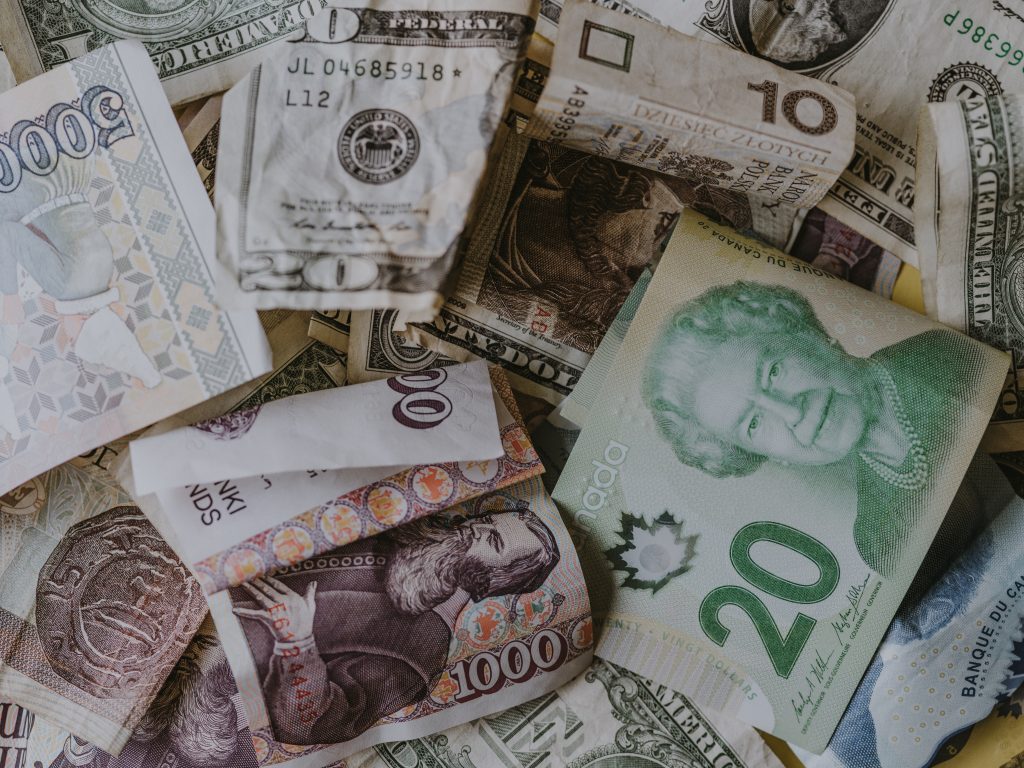Last Updated on August 22, 2022

A government-issued currency known as “fiat currency” is not backed by a tangible good like gold or silver, but rather by the government that created it. Instead of being backed by the value of a commodity, fiat money derives its value from the interplay between supply and demand as well as the stability of the government that issues it. The majority of contemporary paper currencies, including the U.S. dollar, the euro, and other significant world currencies, are fiat currencies.
The opposite of commodity money is fiat cash, also referred to as fiat money. Fiat money and commodity money differ in terms of their fundamental value. In the past, commodities like gold and silver coins had intrinsic worth that came from the materials they were composed of. Contrarily, fiat money has no inherent worth; it is merely a promise from a government or central bank that the currency can be used to buy the things equivalent to its value.
Understanding Fiat Money
Fiat is a Latin word that is frequently translated as “let it be done” or “it shall be.” Fiat money is therefore useless in and of itself; it only has value when the government upholds it.
Fiat money runs the danger of depreciating in value owing to inflation or possibly losing all of its value in the case of hyperinflation because it is not backed by actual reserves like a national stockpile of gold or silver. The rate of inflation can double in a single day in some of the worst cases of hyperinflation, such as in Hungary soon following World War II.
Furthermore, a country’s currency will lose value if people stop believing in it. This is very dissimilar from a currency backed by gold, for instance; a currency backed by gold has intrinsic value since gold is valued for jewellery and decorative purposes as well as for usage in the production of electronics, computers, and aeronautical vehicles.
How Does Fiat Money Work?
Fiat currency is not backed by any tangible assets, only the trust of its owners and the authority of a government pronouncement. A replacement for the barter system and a means of storing purchasing power is paper money. Instead of exchanging one good for another as was the case with barter trade, it enables people to purchase the goods and services they require.
People are able to form plans easily and develop specialised economic activities thanks to their ability to store purchasing power. For instance, a company engaged in the assembly of mobile phones may purchase new machinery, hire and compensate staff, and expand into new areas.
Fiat currency’s value depends on how well a nation’s economy is doing, how well it is run, and how these things affect interest rates. A country with political unrest is likely to have a depreciating currency and rising commodity costs, making it difficult for citizens to purchase the goods they may require.
When the general populace has enough faith in the currency’s capacity to serve as a repository for purchasing power, a fiat currency operates well. Additionally, it must be printed by a government that has the full authority to do so and be backed by the entire credit of that government.
Advantages of Fiat Money
Fiat money is convenient to use and exchange, in addition to being produced at a low cost. Fiat money is not backed by a commodity, hence it is not scarce, unlike gold, which is one of its biggest advantages. Because of this, a government has more influence over the money supply, giving it the ability to manipulate economic factors like interest rates, liquidity, and credit availability.
A government can shield the nation from a financial crisis since it has control over the money supply.
The quantity of fiat currencies is regulated and managed by the government of each individual currency, unlike commodity currencies, which could be impacted by the discovery of a new gold mine. The supply of fiat currencies poses less of a danger for a surprise devaluation because every increase in supply is a choice made in advance by the government of a fiat currency.
Disadvantages of Fiat Currency
Fiat money’s value depends on competent fiscal policy and regulation by the government because it is not linked to a physical asset. A fiat currency may experience inflation or even hyperinflation as a result of irresponsible monetary policy.
Additionally, fiat currency increases the likelihood of bubbles, which are economic cycles in which prices rise quickly before falling just as quickly.
Due to the nearly infinite supply of fiat currencies, which gives governments the option of quantitative easing, bubbles are more common today. Quantitative easing has the potential to stimulate an economy, but it can also raise inflation rates. The national debt levels and home prices could both be affected by this, which could also have an effect on the financial markets.
Fiat Money vs. Cryptocurrency
A discussion regarding the future of fiat currencies and whether they will ultimately be replaced by digital coins has been sparked by the emergence of cryptocurrencies. Bitcoin and other cryptocurrencies aren’t fiat currencies since no single entity issues, manages, or supports them. The entire maximum supply may sometimes occasionally be planned to be capped at a specific amount.
A cryptocurrency, as opposed to traditional money, is more volatile and offers a higher level of data security. The majority of transactions worldwide still use fiat currency, despite the notion among some that cryptocurrencies may eventually displace fiat money.
Cryptocurrencies’ price volatility is one of the reasons some doubters claim it is improbable that they would replace fiat money as the primary medium of exchange. But cryptocurrency acceptability has been rising. For instance, El Salvador became the first nation to recognise Bitcoin as legal cash this year. Some PayPal customers can now use Bitcoin to make purchases. For card programmes, Visa has worked with cryptocurrency platforms.
The Future of Fiat Currency
Since fiat money is now accepted as legal tender in almost every nation, it is difficult to predict what the future may contain. Although fiat money has predominated since the early 1970s, some supporters of Bitcoin and other digital assets claim that the advent of cryptocurrencies makes this new form of money a superior medium of exchange and store of value. And both the government and business have been coming around to it.
Fiat money provides governments more control over a country’s economy, so even while cryptocurrencies are growing quickly and some experts think they may ultimately completely replace fiat currency, we should anticipate it to be the main form of commerce for years to come.
Before you go…
Hey, thank you for reading this blog to the end. I hope it was helpful. Let me tell you a little bit about Nicholas Idoko Technologies. We help businesses and companies build an online presence by developing web, mobile, desktop and blockchain applications.
As a company, we work with your budget in developing your ideas and projects beautifully and elegantly as well as participate in the growth of your business. We do a lot of freelance work in various sectors such as blockchain, booking, e-commerce, education, online games, voting and payments. Our ability to provide the needed resources to help clients develop their software packages for their targeted audience on schedule.
Be sure to contact us if you need our services! We are readily available.











